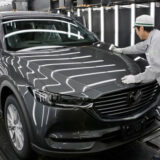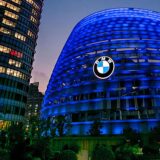Future vehicle trends: Fuels, lubricants and engine co-optimization
For many, a personal vehicle is more than an amazing piece of technology, it is an extension of one’s persona or a status symbol. Dr Stephen Hsu, Professor at George Washington University, claims it is time to divorce the romantic idea of car ownership. Speaking at F+L Week 2018 in Macao on “Future Vehicle Trends: Fuels, Lubricants and Engine Co-Optimization” on March 7, Hsu says it is time to forget about “this is my car” and realise “this is everybody’s car”. Driverless autonomous electrified cars, remotely controlled, will be the new paradigm replacing car ownership and driving. Engines will be designed to provide reliable transport, and durability will replace rapid acceleration as a symbol of performance.
What’s more, unlike your typical divorce, Hsu asserts we do not have a choice in the matter. With seven billion people in the world (and growing), alongside 1.3 billion cars, we must shift our focus to the basic function of moving people to reach their destination at the least cost and most convenience, he says. Traffic jams, congestions, and a population increase, all contribute to the need for new thinking and new ways to move about.
For the doubters, Hsu declares that revolutionary change has already begun, and he has never seen such speed of transformation. It started with 195 countries signing the Paris Agreement, formally recognising the importance of limiting carbon emission. Virtually every country has mandated transportation fuel economy improvements. This is the “low hanging fruit”, says Hsu.
Autonomous, connectivity, smart mobility and electrification are now all on our doorstep. With the ability to order transport on demand, via an autonomous network, personal mobility no longer makes sense. When you think about it, requiring a 3500lb vehicle to move a 200lb person never did – suggests Hsu. Innovation in public transportation combining mass transit with transport on demand will make it easy to use and satisfy individual needs faster and at less cost.
While this new reality slowly takes hold, Hsu confirms the drive to fuel economy is not going to disappear. If anything, it will accelerate. Internal combustion engines are still needed for stratified world transportation systems, with a modern fuel-efficient engine, though fuels need to be more sustainable. In addition, future lubricants should be smart, adaptable, multi-functional, capable of long drain and self-healing the engine because now we are turning the car into a utility and the defining characteristics become completely different.











